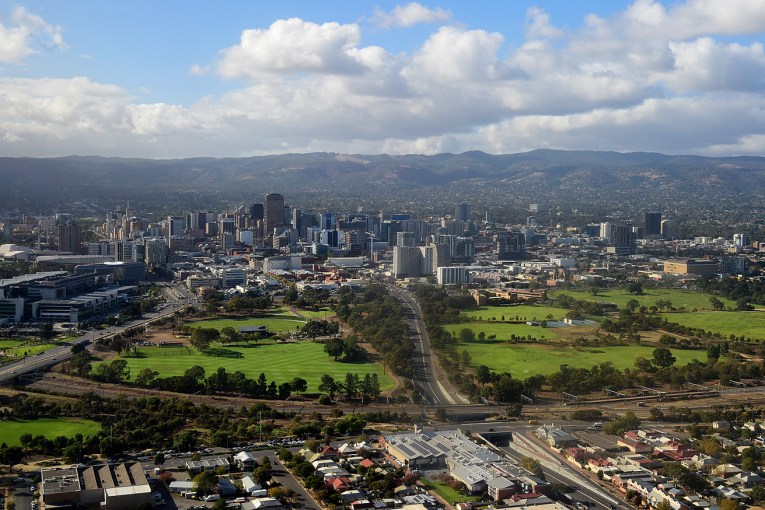Smart networks will end 1950-style energy arguments


Smart grids, as with the internet, will not fall over if attacked at one point. Photo: Getty
Don’t be fooled by the political posturing over South Australia’s state-wide blackout – the really important question is not whether an “over-reliance on renewable energies” was to blame, as deputy PM Barnaby Joyce asked.
South Australian senator Nick Xenophon tried to get a bit of mileage out the same question, and Prime Minister Turnbull threw a sop to the climate-sceptics in his party-room by calling the event a “wake up call” on renewables.
What none of the leaders have acknowledged, however, is that the 1950s centralised power model that fell over on Wednesday is already doomed – with or without the wind-farms so despised by the likes of Mr Joyce.
We’re all in the dark
The news media, too, has been slow to throw off the idea that large power stations, owned by energy-generation oligopolists, will continue to dominate 21st century power supply.
They won’t, because while politicians bicker and the media weigh one centralised-power argument against another, in the background an unstoppable energy revolution is underway.
The New Daily covered this historic shift a year ago, when it became clear that new technologies were unleashing market forces that will overtake the centralised model.
The key technologies are solar power and a new generation battery storage systems that give households and businesses the ability to sell, as well as buy power.

Tesla Powerwall: one of the devices giving consumers choice about how they buy and sell power.
Lithium-ion batteries such as the Powerwall, now being sold into Australia by electric-car manufacturer Tesla, put power ‘consumers’ in control.
Energy-source agnostic
Whether the storage systems are charged by roof-top solar, by some distant wind, gas or coal-fired station, or whether they are kept topped-up by excess energy from a local-council owned storage facility, these systems will allow users to buy and sell energy with any source they choose.
In power markets, peer-to-peer trading through existing grids will ensure that if an interstate interconnector blows up, smaller regional and local grids won’t fall over.
And energy trading won’t just be between giant energy firms and consumers.
Already, if a large shopping centre with a solar array on its roof is generating too much power on a sunny day, it can use a ‘wheeling access arrangement’ to ‘wheel’ that energy to another buyer looking for cheaper power – a large factory, for instance.

Jemma Green of Perth-based firm Power Ledger – raising capital for energy trading.
Jemma Green, co-founder of the Perth-based energy start-up Power Ledger says that soon this kind of arrangement will become available to anyone who needs to buy and sell power “peer to peer” – including households.
Her firm has developed a sophisticated “energy trading platform, allowing people to buy and sell power without using an electricity retailer”.
It’s important to note that the energy grid infrastructure in South Australia, or anywhere else, will be the means through which peer-to-peer selling will take place – and to that extent will still be a monopoly.
And base-load power from centralised power stations will still move across those grids – though as a smaller percentage of the energy used.
Importantly, given the South Australian power failure, supply cannot be destroyed by freak weather events, or, as seen twice in the Crimean Peninsula in the past year, by terrorist attacks.
Large commercial peer-to-peer trading is already taking place and small scale trading is on its way – New Zealand energy firm Vector is pressing ahead with a trial of the Power Ledger trading platform, and Ms Green tells me her firm has begun a capital-raising scheme which is attracting international investors.
Which firms ultimately prosper in the smart-grid future is yet to be seen.
But one thing is certain – politicians trying to impose their preferred energy mix on Australia consumers will find they are only tilting at windmills, so to speak.








